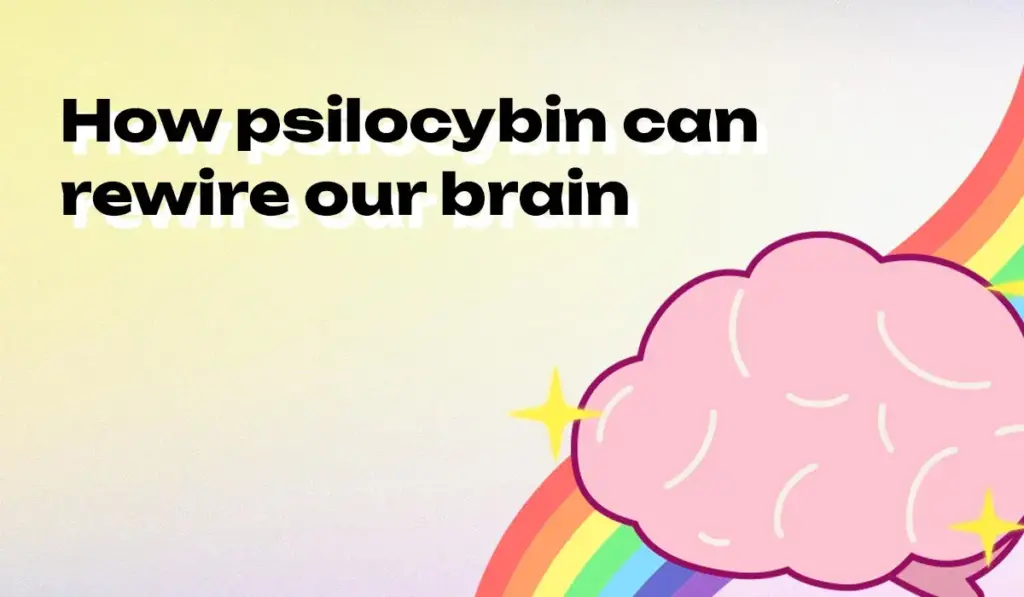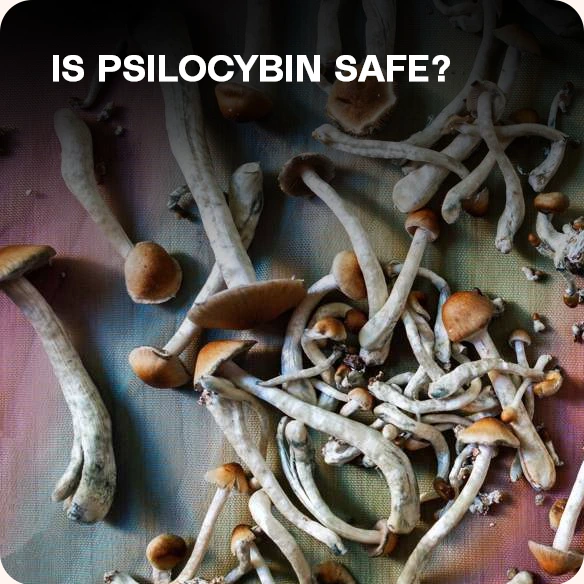Psilocybin, the active compound found in certain mushrooms, has garnered attention for its intriguing effects on the brain and its potential therapeutic benefits.
This compound can rewire neural pathways, leading to mental health and cognition changes.
From calming depression and anxiety to improving creativity and neuroplasticity, the benefits of psilocybin are becoming recognized for their true value.
Key Takeaways:
- Psilocybin, found in magic mushrooms, has the ability to rewire the brain and change brain patterns.
- The effects of psilocybin on the brain include increased neuroplasticity and reduced symptoms of depression, anxiety, and PTSD.
- While there are risks associated with using psilocybin, it can be used in therapy to assist with the treatment of mental health issues.
What Is Psilocybin?
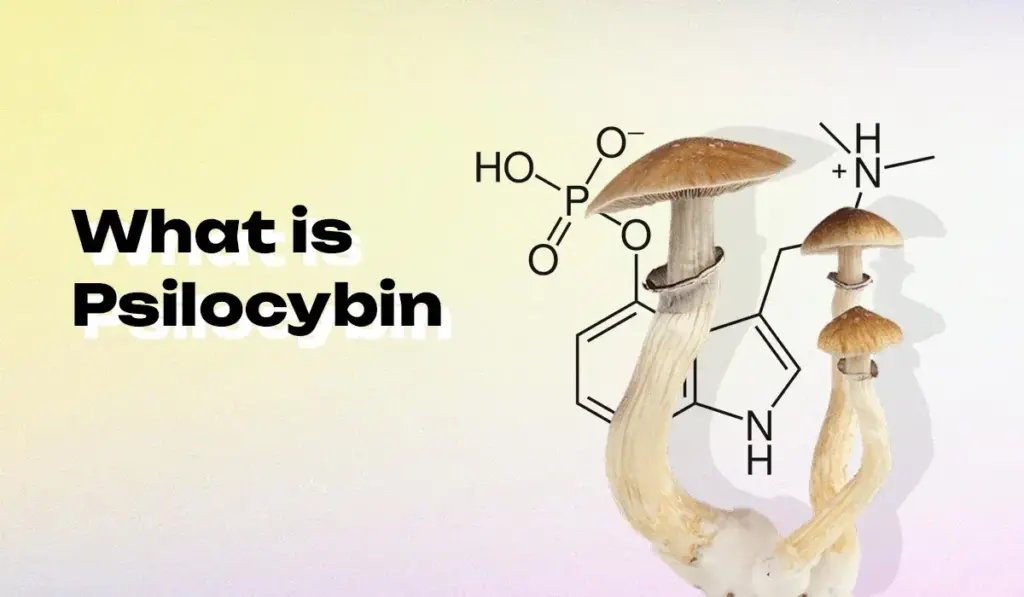
Psilocybin, a naturally occurring psychedelic compound found in certain species of mushrooms, has gained attention for its potential to impact brain function and neuroplasticity.
Research highlights how psilocybin interacts with serotonin receptors in the brain, leading to alterations in perception, cognition, and emotional processing.
As studies continue to reveal the complexities of ‘your brain on psychedelics,’ psilocybin’s role is becoming clearer, particularly regarding its ability to stimulate brain repair and enhance mental well-being.
How Do Mushrooms Rewire the Brain?
Mushrooms containing psilocybin are known to rewire the brain, promoting new neural pathways and enhancing existing connections. This rewiring is closely tied to neuroplasticity, which describes the brain’s capacity to adapt and reorganize itself in response to experiences.
By changing brain activity patterns, psilocybin offers insights into how psychedelics can stimulate profound changes in mental health and cognitive function, especially in areas like learning, memory, and problem-solving.
What Are the Effects of Psilocybin on the Brain?
The effects of psilocybin on the brain are multifaceted, leading to significant changes in brain activity, perception, and emotional regulation.
Research indicates that psilocybin can enhance emotional resilience and facilitate introspection by activating serotonin receptors, crucial for mood regulation and cognitive function.
Studies have shown that psilocybin can lead to increased connectivity between different brain regions, effectively overriding the usual communication patterns. This can result in heightened creativity, improved problem-solving abilities, and a more profound understanding of one’s feelings.
- In one study, participants reported a sense of interconnectedness and altered perception during their psilocybin experience, which resulted in long-term mood improvements.
- Another research project found significant reductions in anxiety and depression symptoms among patients with terminal illnesses after psilocybin treatment.
These findings suggest that psilocybin could help in new treatments for mental health disorders, its unique ability to reshape how individuals think and feel, ultimately nursing a deeper self-awareness and emotional balance.
These therapeutic insights are especially valuable for those exploring psilocybin dosage strategies for depression, where emotional rewiring plays a central role
How Does Psilocybin Change Brain Patterns?
Psilocybin changes brain patterns by changing connectivity and communication between different brain regions, a phenomenon linked with neuroplasticity.
Research indicates that when people consume this medicine, the typical hierarchies of brain function dissolve, allowing for a more profound and flexible approach to mental processes.
Studies using neuroimaging technologies have shown significant changes in functional connectivity. Participants display increased synchrony between regions like the default mode network and areas involved in sensory perception.
These findings suggest that the integration of psilocybin into treatment protocols may revolutionize how mental health issues are approached, making the understanding of brain connectivity and function even more crucial.
What Are the Benefits of Psilocybin for the Brain?
The benefits of psilocybin for the brain are an important subject in modern neuroscience, particularly regarding its potential to ease mental health disorders such as depression and anxiety.
Psilocybin stimulates brain repair and enhances neuroplasticity, enabling individuals to form new cognitive patterns and improve emotional resilience.
As research unfolds, the therapeutic applications of psilocybin are presenting a promising alternative to traditional treatments.
Helps with Depression and Anxiety
Psilocybin is increasingly recognized for its therapeutic effects in treating depression and anxiety, offering a new treatment for people seeking relief from these conditions.
Clinical studies have shown that psilocybin can produce significant reductions in symptoms, often with lasting effects that extend well beyond the initial treatment.
Those seeking relief can explore a gentle psilocybin blend like CALM Capsules, designed for daily use to stabilize mood.
This remarkable compound interacts with serotonin receptors in the brain, particularly the 5-HT2A receptor, which can improve mood and emotional state.
Unlike antidepressants that often take weeks to show benefits, psilocybin has been shown in trials to produce rapid improvements following a single session.
For many patients, the experience can result in insights into their conditions, cultivating a sense of connection and well-being.
- In clinical trials, participants have reported decreased feelings of isolation and despair.
- Patients often describe the experience as transformative, leading to shifts in perspective that contribute to lasting mental health improvements.
- Follow-up studies show that many individuals maintain reduced anxiety levels and improved mood for months after their sessions.
Psilocybin’s potential to create new neural pathways may be a critical factor in its efficacy, setting it apart from traditional treatments.
Enhances Creativity and Openness
Research suggests that psilocybin can improve creativity and openness, enabling cognitive flexibility that allows people to think outside the box and embrace new perspectives.
These changes in brain function reflect an increased ability to connect disparate ideas and explore creative solutions.
This transformative experience often results in a heightened sense of creativity and an openness to new experiences, which can be particularly useful in problem-solving situations.
To support creative flow and mood elevation, CREATE Capsules blend psilocybin with Lion’s Mane to promote divergent thinking.
For instance, a study at Johns Hopkins University highlighted how participants displayed increased cognitive flexibility, leading them to generate a wider range of ideas when doing creative tasks.
They express how psilocybin helps them transcend conventional thought barriers, making it easier to access hidden talents or perspectives they had not considered before.
This is one reason many creatives are exploring microdosing for creative thinking as part of their daily rituals
- Users often mention feelings of interconnectedness with their surroundings.
- Enhanced emotional openness allows for a richer creative flow.
- Participants regularly mention strategies for resolving long-standing issues.
Facilitates Neuroplasticity
Psilocybin facilitates neuroplasticity, allowing the brain to form new neural pathways and strengthen existing connections, which is essential for learning and recovery.
This plasticity is essential for adapting to new experiences and overcoming challenges in mental health.
Recent research has shown that psilocybin not only stimulates the growth of new synapses but also enhances the brain’s ability to reorganize itself following traumatic events or emotional stress.
To encourage this process, FOCUS Capsules offer a nootropic synergy that supports long-term brain health.
In a study involving patients with depression, participants experienced increased connectivity between different regions of the brain, which resulted in greater emotional regulation and improved mood stability.
This brain rewiring capacity is further enhanced when paired with techniques like microdosing at night, which support recovery and repair during sleep.
Clinical observations highlighted significant improvements in mental flexibility, suggesting that psilocybin may help individuals process and cope with their experiences more effectively.
- Example of study: A 2021 study published in the journal Nature found that participants treated with psilocybin displayed marked changes in brain activity, particularly in the default mode network, which is associated with self-referential thoughts and mind-wandering.
- Clinical outcomes: Post-treatment assessments showed that the majority of subjects reported reduced anxiety and depressive symptoms, demonstrating psilocybin’s profound impact on mental well-being.
Reduces Symptoms of PTSD
Psilocybin has shown promise in reducing symptoms of PTSD, helping individuals manage traumatic experiences by changing their perception and emotional response.
This therapeutic application is gaining traction in clinical settings as more studies support its effectiveness.
Recent research, including a pivotal study conducted at Johns Hopkins University, highlights how psilocybin can facilitate profound emotional breakthroughs, allowing patients to revisit and reprocess their traumatic memories in a safe environment.
In this study, participants reported significant reductions in anxiety and depression related to their PTSD, with some achieving lasting relief even months after treatment.
Emerging protocols on psilocybin for PTSD support show that low-dose approaches can be both safe and effective.
Testimonials from patients reveal a common theme of renewed hope and resilience; one participant shared how the experience allowed them to finally confront their past and regain a sense of control over their lives.
Considering these promising findings, mental health professionals are exploring the integration of psilocybin into standard treatment protocols, potentially revolutionizing the way PTSD is addressed.
What Are the Risks of Using Psilocybin?
While psilocybin holds great promise for therapeutic use, it is essential to consider the risks associated with its use.
Potential negative psychological effects, such as anxiety and confusion, can occur, particularly in individuals with a history of mental health issues. Furthermore, there’s a small risk of triggering psychotic episodes, raising concerns regarding its safety and potential for addiction.
Can Cause Negative Psychological Effects
Psilocybin can cause negative psychological effects, including heightened anxiety and confusion during the experience, especially in users who are unprepared or have a predisposition to mental health issues.
These effects can be distressing and may lead to challenging experiences known as ‘bad trips.’
Such experiences can manifest as a range of symptoms that challenge the psyche, leading individuals to feel isolated or overwhelmed.
It is crucial to understand that the environment and mindset significantly influence these outcomes. To minimize these risks, one should prioritize effective preparation.
This includes:
- Setting: A calm and safe physical space can provide reassurance.
- Mindset: Approaching the experience with a positive and open attitude is essential.
- Support: Having a trusted friend or guide can help navigate difficult moments.
By emphasizing these preparatory steps, users can potentially avoid the adverse psychological effects associated with psilocybin, leading to more positive and insightful experiences.
May Trigger Psychotic Episodes
For some individuals, particularly those with a personal or family history of mental illness, psilocybin may trigger psychotic episodes, leading to severe mental health crises.
This risk underscores the need for careful screening and oversight in therapeutic settings.
Research indicates that the potential for psilocybin to induce psychosis varies among individuals, particularly when there is a genetic predisposition or previous episodes of mental instability.
A notable study published in the journal Psychopharmacology detailed cases where users with underlying vulnerabilities exhibited heightened responses to psychedelics.
- For example, a participant with a family history of schizophrenia experienced a dissociative state during and after the experience, raising concerns among researchers about the safety of such treatments.
- A comprehensive review highlighted the necessity of psychological assessments prior to therapy, emphasizing that screening tools can help mitigate these risks.
By incorporating thorough mental health evaluations, practitioners can better assess individual susceptibility, leading to safer therapeutic environments for those considering psilocybin treatment.
Can Be Addictive
Though considered less addictive than many substances, there is still a potential for misuse and dependency with psilocybin, particularly if used irresponsibly or without appropriate guidance.
Understanding this potential is crucial for both users and health professionals.
This compound, primarily found in certain mushrooms, is classified as a psychedelic, meaning its effects are not addictive in the same way as alcohol or opioids.
Awareness of the potential for misuse is essential. When engaging in psychedelics, it is important to approach their use thoughtfully and mindfully to mitigate risks.
To explore the safety side in depth, read our full breakdown: is microdosing psilocybin safe?
- Users should educate themselves about the substance, emphasizing its intended therapeutic applications.
- Setting and environment matter immensely; a safe, controlled setting can help reduce anxiety and promote a positive experience.
- It’s invaluable to have support from knowledgeable individuals who can guide users through their journey responsibly.
How Can Psilocybin Be Used in Therapy?
Psilocybin can be effectively utilized in various therapeutic settings to enhance treatment protocols for mental health disorders.
Its integration into therapy focuses on providing a safe environment where patients can explore their thoughts and emotions, leading to profound insights and healing.
Psilocybin-Assisted Therapy
Psilocybin-assisted therapy involves guided sessions where a trained therapist supports individuals while they navigate their psilocybin experience, facilitating a deeper understanding of their emotions and thought patterns.
This therapeutic framework provides a structured environment crucial for promoting healing.
In these sessions, the therapist plays a pivotal role in creating a safe space, offering both emotional and psychological support throughout the journey.
Typically, the process begins with a thorough assessment, allowing the therapist to tailor the experience to the individual’s needs, goals, and mental health status.
During the session itself, patients often lie down with eyes closed, while the therapist remains present, gently guiding them through the emotional and cognitive landscapes they encounter. Post-session integration is equally important; it includes discussions aimed at making sense of the experience and exploring insights that can foster lasting change.
Research has demonstrated the effectiveness of this approach, in particular for individuals struggling with anxiety, depression, and PTSD. Numerous studies and patient testimonials highlight transformative results, showcasing enhanced emotional well-being and a greater sense of connectedness to life.
This innovative therapy offers a promising avenue for those seeking profound personal growth and healing.
Microdosing with Psilocybin
Microdosing with psilocybin involves taking sub-perceptual doses to enhance daily functioning, creativity, and emotional well-being without the intense effects of a full psychedelic experience.
This practice has gained popularity among individuals seeking cognitive and emotional improvements in their daily lives. Unlike traditional psilocybin use, which often leads to profound and sometimes overwhelming experiences, microdosing allows users to integrate the benefits of the substance while maintaining routine activities.
- Many advocates claim that it can lead to increased focus, reduced anxiety, and a surge in creative output.
- Research has begun to explore the potential therapeutic properties of this approach, especially when comparing targeted blends like CALM vs CREATE vs FOCUS capsules
It is essential to consider both the potential benefits and risks associated with microdosing, including the possibility of psychological dependency or unwanted side effects.
Integration Therapy
Integration therapy focuses on helping individuals make sense of their psilocybin experiences, guiding them to apply insights gained during their sessions to their daily lives. This process is essential for ensuring that the therapeutic effects of psilocybin translate into meaningful and lasting change.
The integration of psychedelic experiences, particularly those involving psilocybin, serves as a vital bridge between profound personal revelations and actionable steps moving forward. In these integration sessions, individuals often explore their feelings, reflect on their experiences, and identify practical strategies for implementing new perspectives in their everyday routines.
Integration therapy not only reinforces insights gained during the psilocybin journey but also facilitates emotional healing and resilience.
Techniques used in these sessions may include:
- Journaling to document thoughts and emotions
- Mindfulness practices to maintain present awareness
- Creative expression through art or movement
- Verbal processing with a trained facilitator
These approaches not only foster deeper understanding but also support ongoing mental health, as participants learn to navigate life with newfound clarity and purpose.
Frequently Asked Questions
What are mushrooms that can rewire the brain?
Mushrooms that can rewire the brain are typically referring to psychedelic mushrooms, specifically those containing the compound psilocybin. These mushrooms have been found to have the ability to create new neural connections in the brain, leading to potential therapeutic benefits.
How do mushrooms rewire the brain?
Mushrooms rewire the brain by interacting with serotonin receptors, specifically the 5-HT2A receptor, which is responsible for regulating mood, perception, and cognition. This interaction leads to changes in brain activity and neural pathways, potentially resulting in altered thought patterns and behaviors.
What are the potential benefits of mushrooms rewiring the brain?
Some potential benefits of mushrooms rewiring the brain include relief from depression and anxiety, improved mood and well-being, increased creativity and introspection, and potential treatment for certain mental health disorders. Research is still ongoing to fully understand the extent of these potential benefits.
Is rewiring the brain with mushrooms safe?
When used in controlled settings and under the guidance of a trained professional—or by following a safe microdosing protocol—rewiring the brain with mushrooms has been found to be relatively safe
Can everyone benefit from mushrooms rewiring the brain?
Not necessarily. While some individuals may have positive experiences and benefits from mushrooms rewiring the brain, others may not. It is important to consider personal factors and potential risks before using these substances for brain rewiring purposes.
How can mushrooms rewiring the brain have long-lasting effects?
Research suggests that mushrooms rewiring the brain can create new neural pathways and connections that can have long-lasting effects, particularly when combined with therapy and a supportive environment. This can lead to sustained changes in brain patterns and behaviors, potentially providing long-term benefits for mental health and well-being.
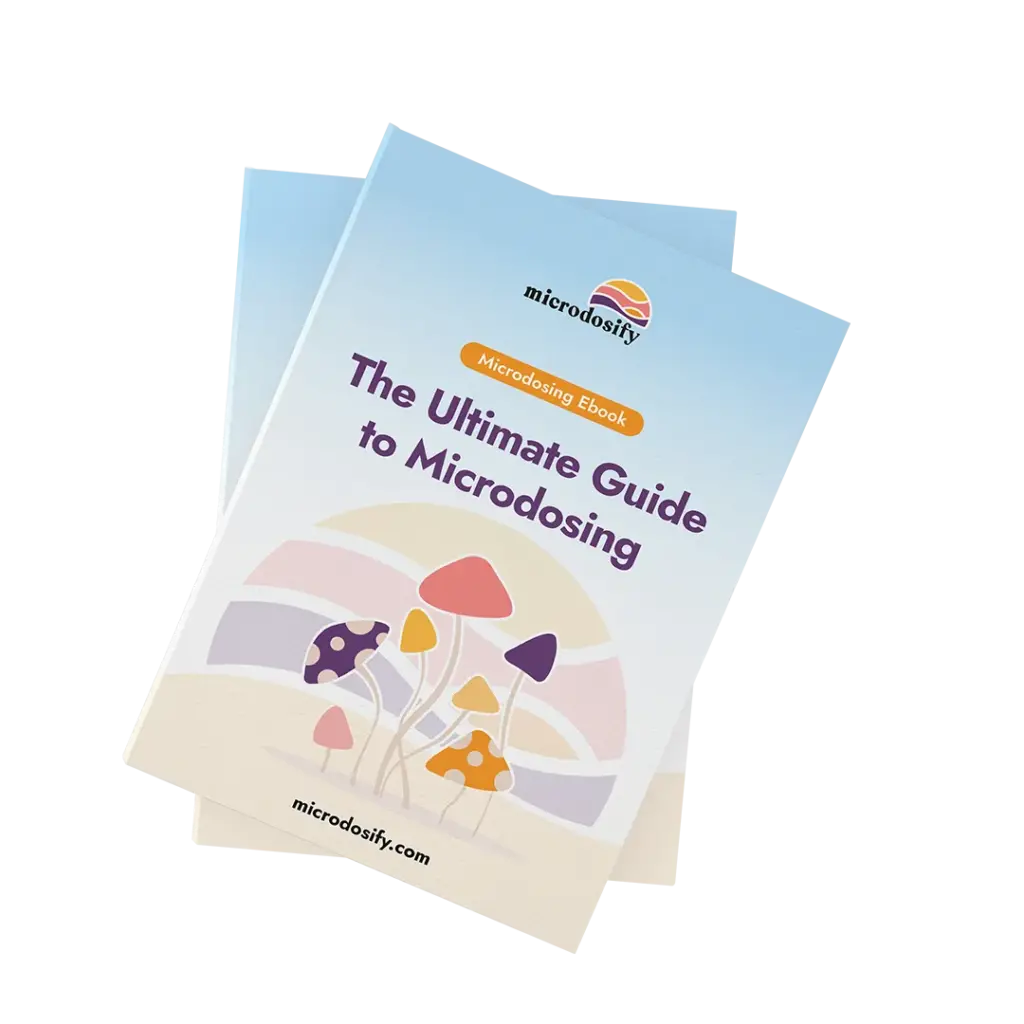

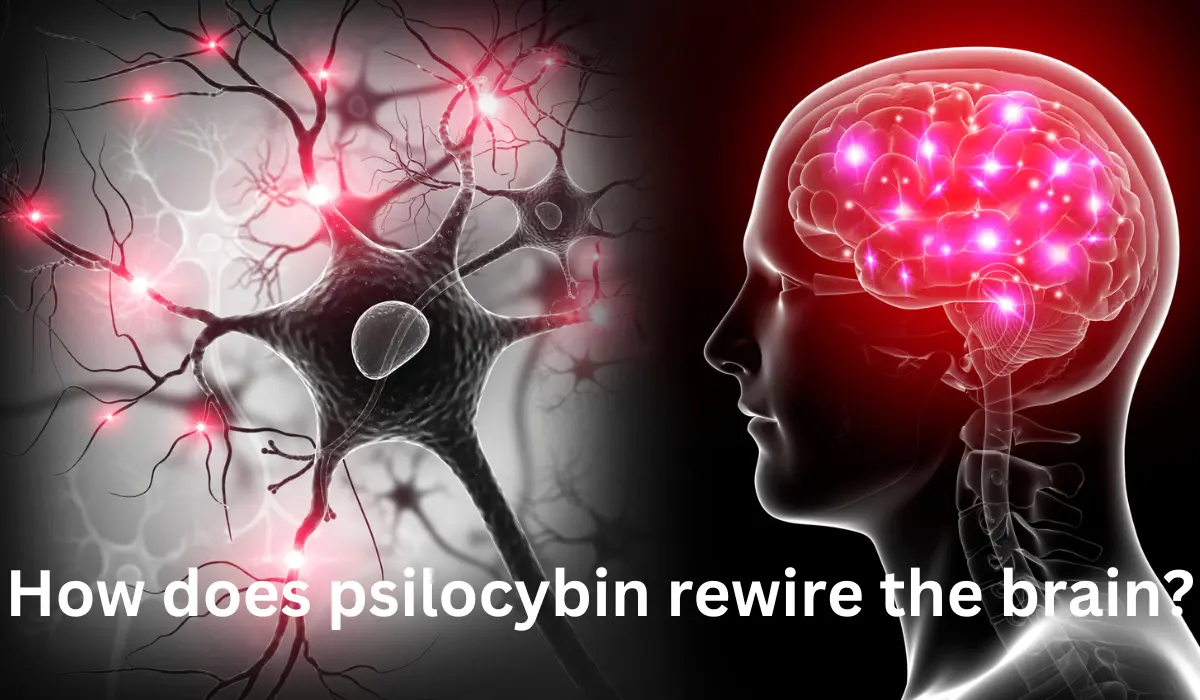
 14 min read
14 min read